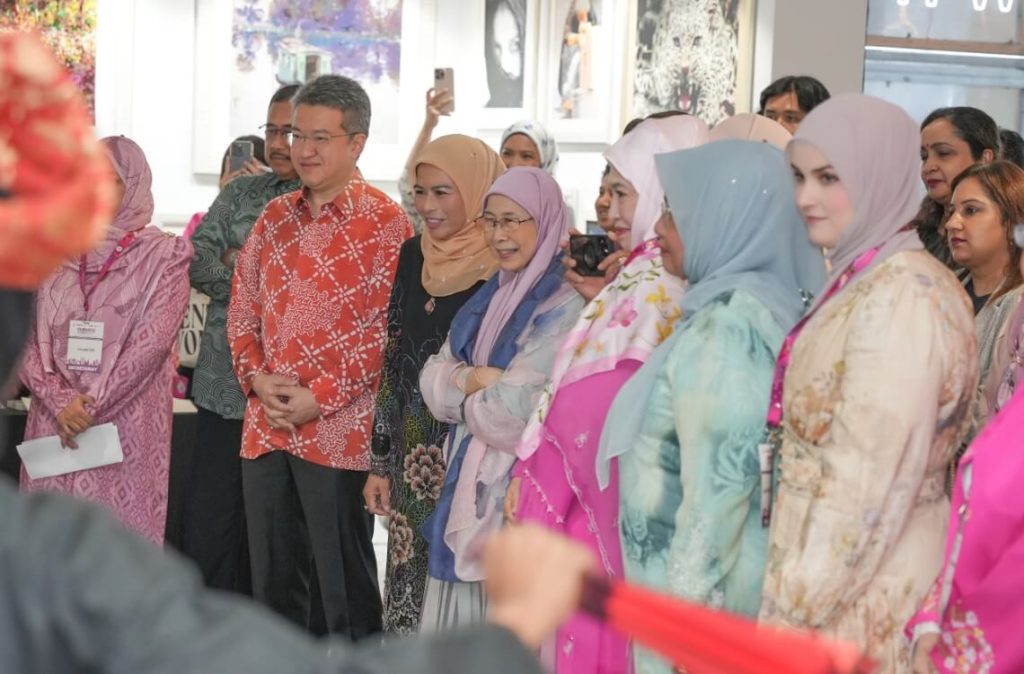We always hear about women breaking into international markets.
Headlines love the story of the Southeast Asian woman landing her first deal in Europe, exporting to the US, or getting featured in a Silicon Valley pitchfest.
But at the Women Economic Forum (WEF) ASEAN 2025 in Kuala Lumpur, a different narrative emerged.
What if the real growth opportunity isn’t across oceans but just across borders?
This year’s theme pulsed with a newly found energy – the Sheconomy isn’t just global, it’s also regional.
And some of the most powerful sessions showed us exactly what that looks like when women across Southeast Asia choose to trade, collaborate, and scale together.
From Roundtables to Real Talk
In Round Table 8: Internationalization Of Micro Entrepreneurs and Malaysia Halal Certification For Global Market Place, speakers like Datin Dr Norli Hj Alias, Avagrace Law, and Amielyn Limbona got specific about how women entrepreneurs are leveraging regional ties.
This is especially significant through Malaysia’s globally respected halal certification to break into not just Middle Eastern or Western markets, but neighbouring ASEAN countries with similar values and consumer behaviours.
The discussion wasn’t just theoretical.
Real businesses are already connecting across the Philippines, Indonesia, Malaysia, and Singapore.
They are exchanging products, services, and insights with an understanding that language and culture are as much a part of trade as logistics and tariffs.
A Sisterhood Supply Chain
Unlike traditional trade expos or stiff B2B panels, many sessions at WEF ASEAN 2025 took on a more intimate, collaborative tone.
In fireside chats and hallway conversations, we heard again and again: women-led businesses are most powerful when they’re rooted in trust.
During Round Table 9: Breaking the Silence: Addressing Sexual Harassment in the Sheconomy and Beyond, while the focus was on workplace safety and dignity, the underlying message resonated across all trade-related talks too.
Women are creating safer, more inclusive business environments by partnering with those who understand their lived experience.
This empathy-first approach is fuelling not only purpose-driven products but also purpose-driven partnerships.
Culture as Currency
Parallel sessions like Harnessing Cultural Heritage: The Role of Women Leaders in Integrating Cultural Values into the Sheconomy and Youth Cultural Diplomacy in Business: How Women & Youth Leaders are Using Cultural Exchange to Strengthen the Sheconomy reminded us that cultural knowledge is a key differentiator in regional trade.
Women aren’t just selling goods, they’re exchanging stories, identities, and meaning.
This cultural fluency gives them an edge in regional branding, marketing, and customer connection.
Looking Inward for Growth
So, what really happens when Southeast Asian women start trading with each other instead of only looking to the West?
They build something deeper than markets. They build momentum.
Through sessions, roundtables, and even over local grown coffee during networking breaks, it became clear, regional trade isn’t a second-best option.
It’s smart, scalable, and steeped in sisterhood.
For more insightful stories and fun recipes, stay tuned to Motherhood Story!
